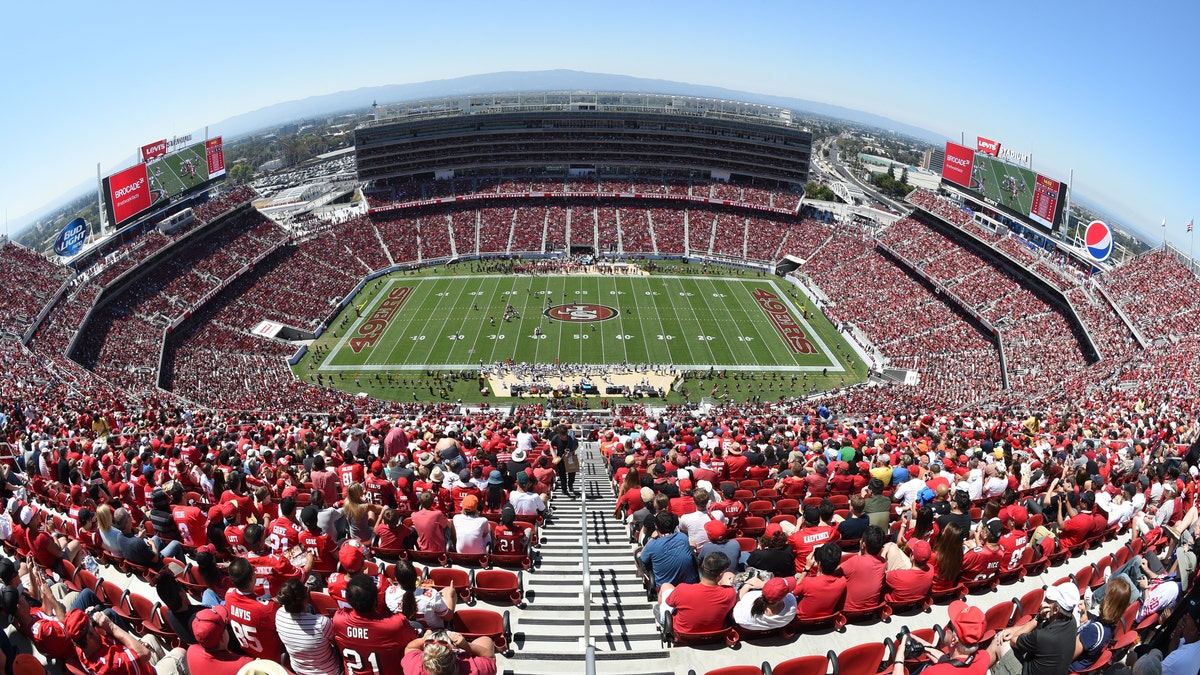
August 17, 2014; Santa Clara, CA, USA; General view of Levi's Stadium during the first quarter between the San Francisco 49ers and the Denver Broncos. ((USA Today Sports Kyle Terada-USA TODAY))
The San Francisco 49ers were recently blown out by the visiting Denver Broncos in a preseason game. The silver lining: The new Levi’s Stadium’s Wi-Fi network held up beautifully, serving up more than 2.1 terabytes of data to nearly 25,000 fans.
Levi’s Stadium is the 49ers’ brand-spanking-new home in Santa Clara, California. Built at a cost of more than $1.2 billion, the open stadium boasts a number of high-tech features fit for a Silicon Valley crowd, including a beast of an in-stadium network set up to serve a total capacity of about 68,500 fans.
Related: It’s just like the couch! Yahoo teams with 49ers on a tech-soaked stadium
There were close to 42,000 fans in attendance at last week’s preseason game, and a an average of 16,862 were connected to the stadium’s Wi-Fi network throughout the game, according to Dan Williams, vice president of technology for the 49ers. He added that the peak saw 24,775 fans were connected to the Wi-Fi network during the game.
The network averaged more than 1 gigabit per second for more than two hours. “We offloaded 2.13 terabytes during the event,” Williams said in an interview with Mobile Sports Report. It’s worth noting that this figure doesn’t include data over the stadium’s distributed antenna system, which is built to enhance cellular signals in the stadium.
The Levi’s Stadium network boasts 680 Wi-Fi access points (using gear supplied by Aruba Networks) and 12,000 Ethernet ports, all connected to a 40-gigabit-per-second fiber optic connection, which is many times faster than the FCC’s definition of broadband. Levi’s Stadium also has about 1,700 beacons, according to the San Jose Mercury News. These can be used to know where attendees are throughout the venue to provide them with helpful, targeted information.
Fans in attendance at last week’s game made good use of the team app’s food-ordering feature. Video figures to be more prominent when the regular season begins, as the app will roll out an instant-replay feature by the time the team has its first home game on Sept. 14.
The Barclays Center in Brooklyn , New York; and Sporting Park in Kansas City, Kansas, are among the other cutting-edge stadiums across the country pushing the high-tech envelope at sporting events.








































